How Banksy sparked a steel town's love for colour
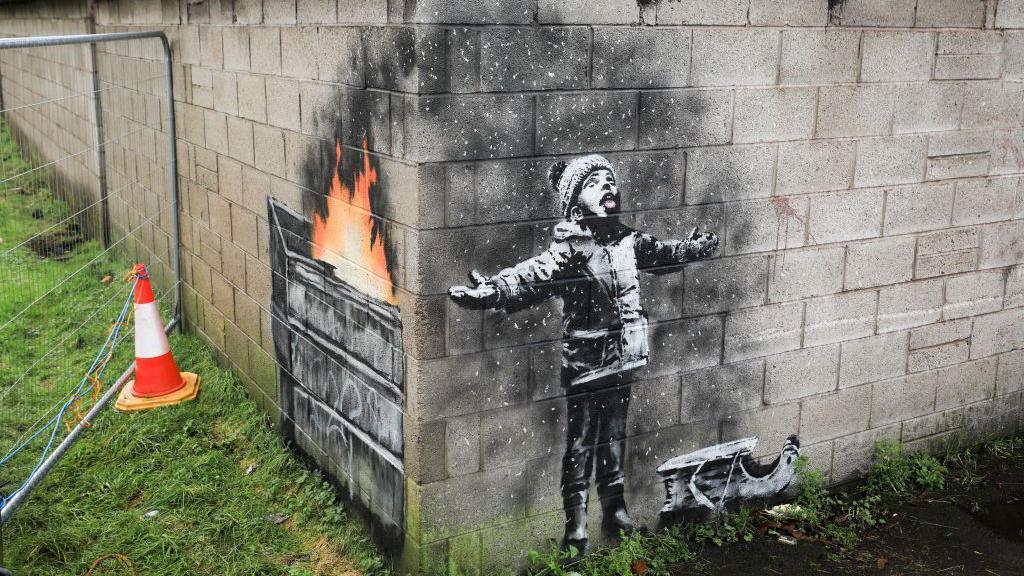
Season’s Greetings appeared on a steelworker's garage in Taibach, Port Talbot, in December 2018
- Published
When Banksy artwork Season's Greetings appeared on a garage in Port Talbot in 2018 it kicked off a three-year saga that ended in it being removed from the town.
But more than five years on it has left a lasting legacy - a vibrant street art community.
"There were people doing it anyway," said steelworker and street artist Ryan Davies.
"But there's no two ways about it - when Banksy turned up in town, that really kicked off a scene here that had been bubbling under."
Anyone paying a visit to the steel town could not help but notice its ever-growing collection of street art - everything from imposing murals to graffiti lettering and tagging.
"Port Talbot is renowned for it now," said Ryan.
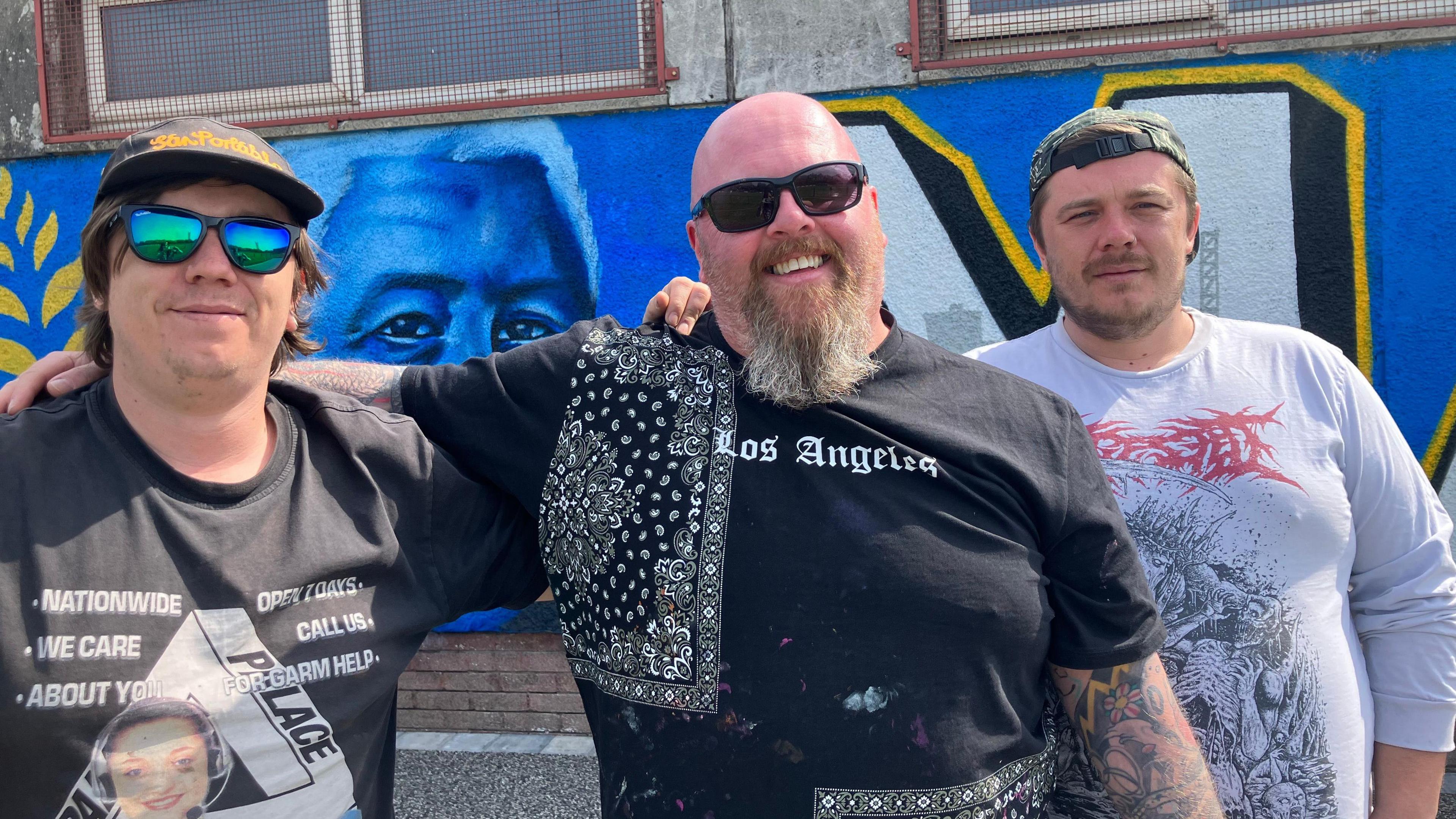
Aiden, Ryan and Matthew create artworks together as THEW Creative
Ryan, a boiler man at the local steelworks for 33 years, began painting on walls over two years ago.
When he is not on shift he can be found painting alongside twin brothers Matthew and Aiden Cole. Together they are known as THEW Creative.
On a Friday afternoon they were at Margam Football Club, which had commissioned them to paint a mural on its clubhouse in the shadow of the steel plant's blast furnaces.
With looming mass job cuts at the steelworks, Ryan said it was a welcome distraction from the day job, where people were feeling "very demoralised".
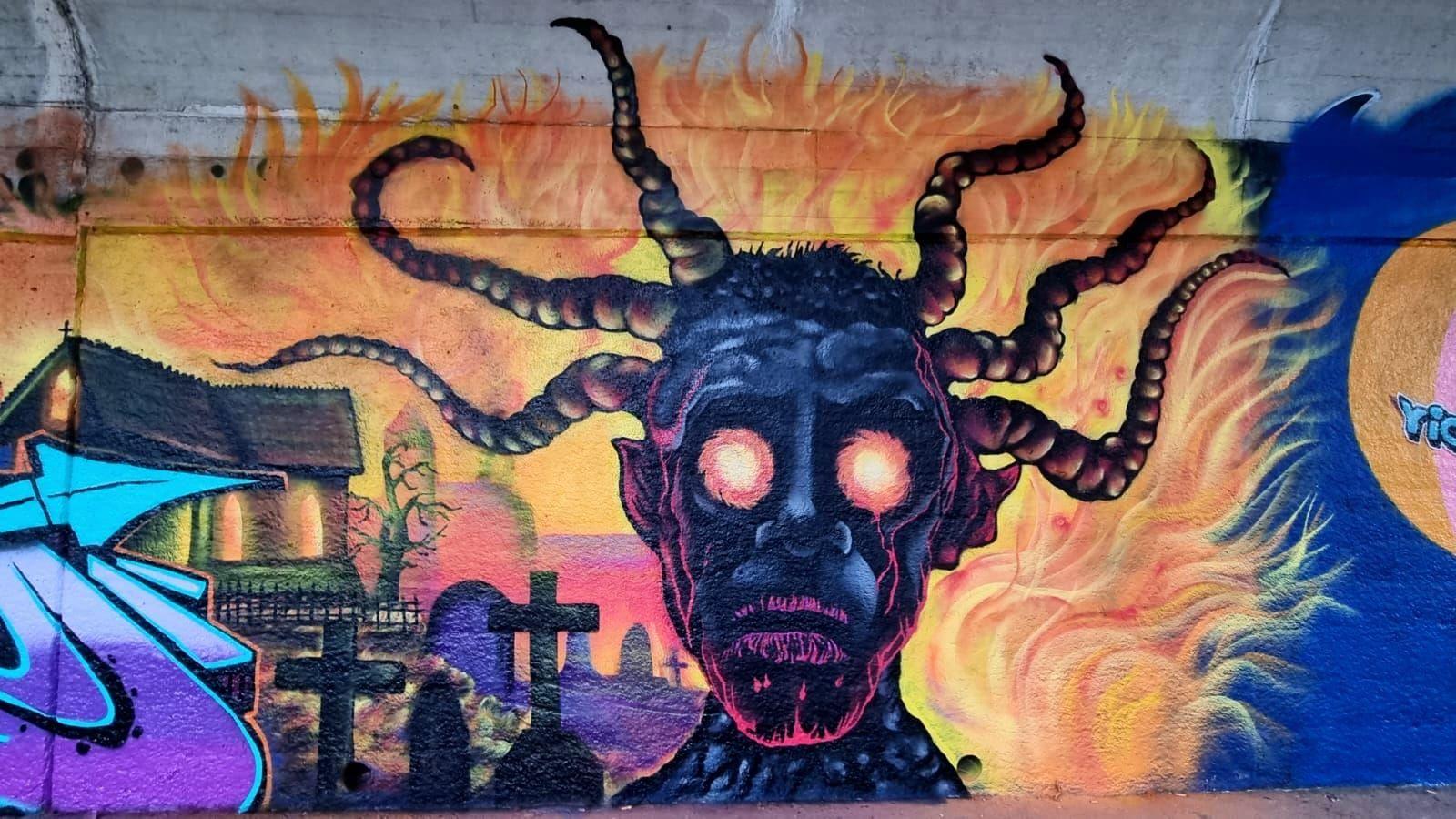
Port Talbot has an ever-growing collection of street art following Banksy's visit
"With me coming up to 50, I’m lucky enough to have paid off my mortgage... but there’s boys in their twenties there and they’ve just taken on mortgages, they've got young kids and a long way to go before retirement - so for them it’s very, very nerve-wracking," he said.
Ryan said having colourful street art around the town was a hopeful sight during difficult times.
"It makes you think the town might actually have a chance and it's not just about the steelworks," he added.
What do we know about Banksy?
- Published13 August 2024
Banksy 'confirms' first name in lost BBC interview
- Published21 November 2023
Banksy: What it was like to work for street artist
- Published17 July 2023
"[The Banksy] made the common person realise that it's not just anti-social, art is art," said Aiden.
"People started realising ‘we could have art in our garden, on our children’s bedroom wall, on our football club, on our restaurant - it has really bloomed and there’s a nice scene going on in Port Talbot at the moment."
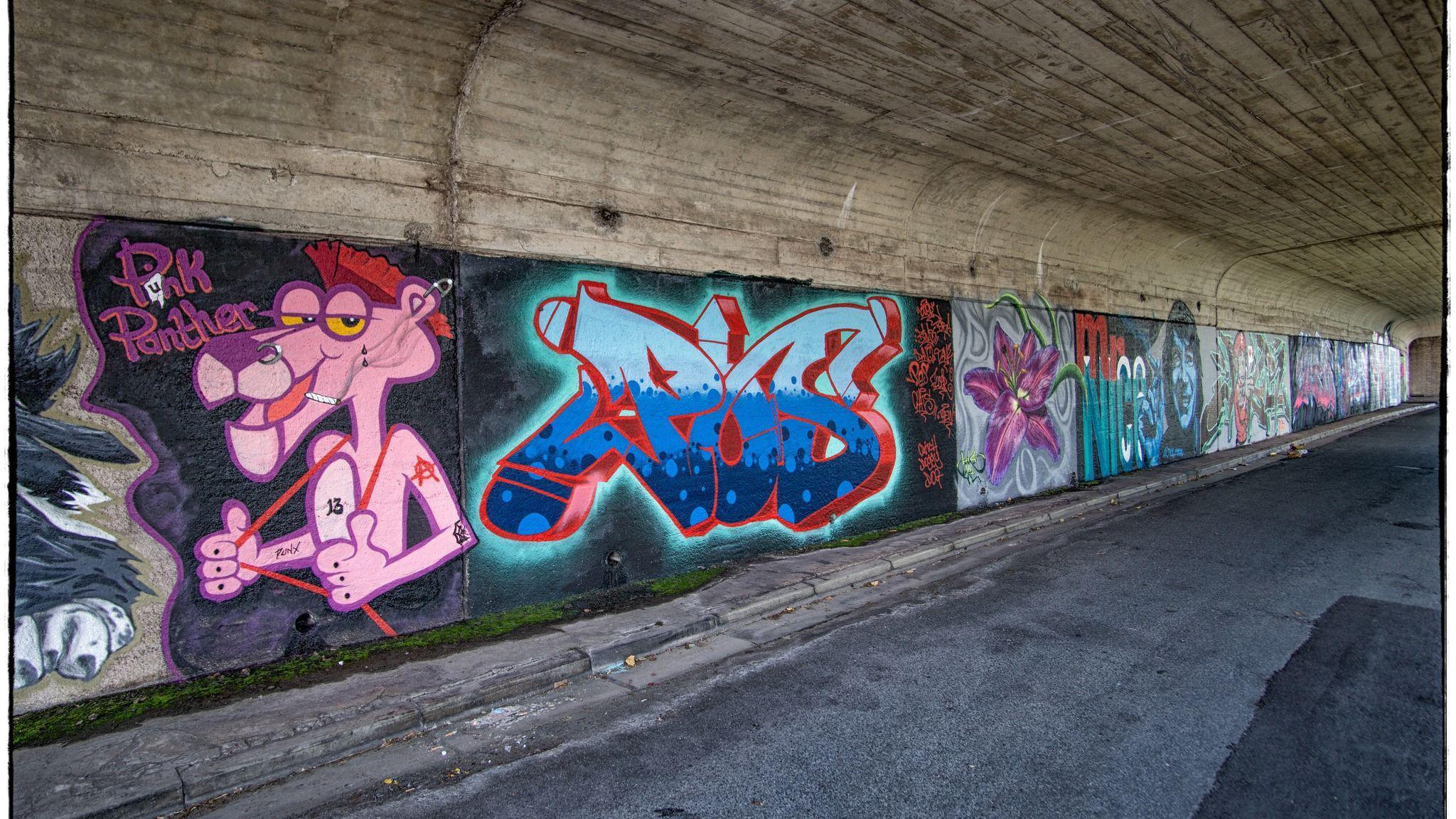
Port Talbot has an open wall where artists are free to paint
But not everyone in Port Talbot is a fan.
"We got accused of making the place look like a third world country the other day by a random old man - fair enough," said Aiden.
"But overwhelmingly it’s a positive reaction, I would say," added Ryan.
"You can’t please everyone, can you," added his friend.
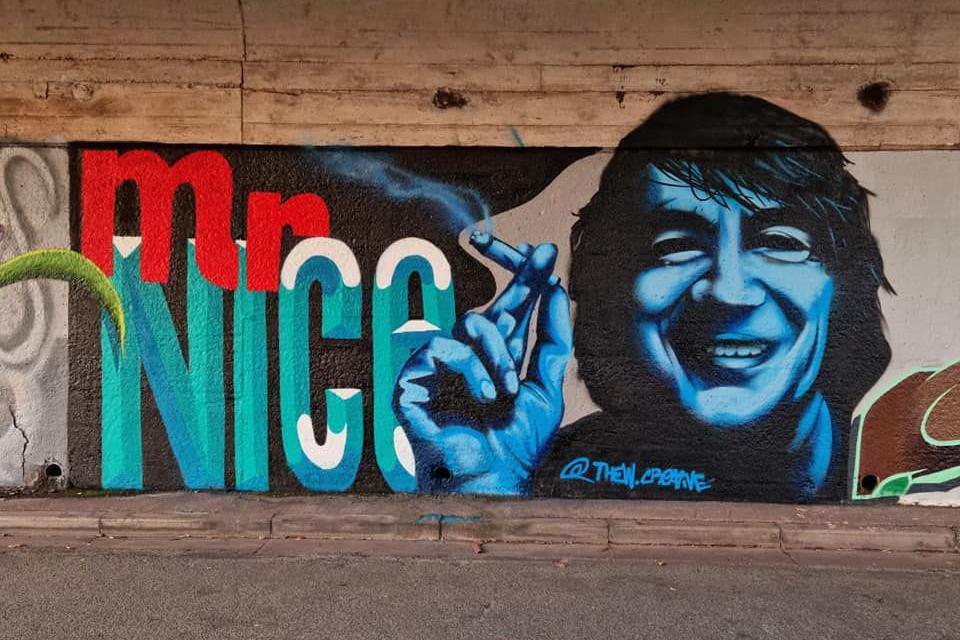
A mural of notorious Welsh cannabis smuggler 'Mr Nice', aka Howard Marks
It was back in December 2018 when Season’s Greetings appeared on steelworker Ian Lewis’ garage in Taibach, and following online speculation it was soon claimed by the famous anonymous street artist.
With an estimated 20,000 visitors flocking to see the artwork, wardens were drafted in to control traffic and film star Michael Sheen, who grew up in the area, helped pay for a protective plastic screen and round-the-clock security.
It was eventually bought by gallery owner John Brandler and taken to a building in the town centre so it could be viewed by the public.
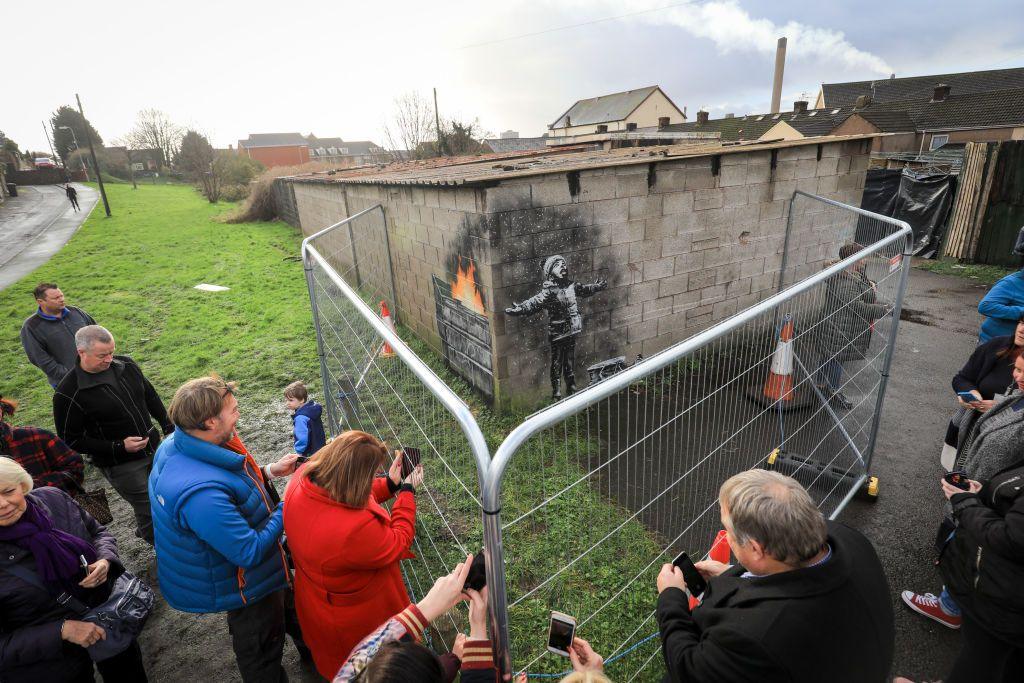
Season’s Greetings appeared on steelworker Ian Lewis’ garage in Taibach in December 2018
But once an agreement to keep it there expired Mr Brandler moved it out of Wales in February 2022.
"It was a travesty," recalled Ryan.
"It was taken away from us, a very rich person came in and bought it and off it went."
When this was put to Mr Brandler he said he had bought the artwork intending to keep it in the town and create an international street art museum - but the idea had been scrapped by the local council.
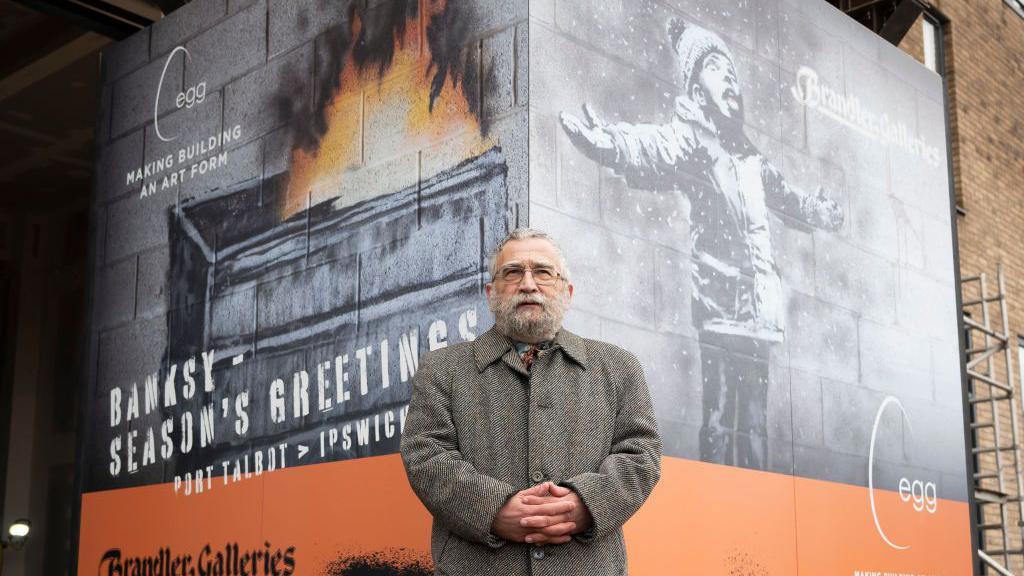
John Brandler says he was "so saddened" Season's Greetings was not able to stay in Wales
A spokeswoman from Neath Port Talbot council said at the time: "Discussions were held on the potential for the work to remain in Port Talbot but the council was informed it would have to meet the costs of its removal and installation into a new venue, to continue to cover the insurance and to pay a fee in the region of £100,000 per year for the loan of the work."
Recalling the dispute, Mr Brandler said: "I was travelling to Wales virtually every week costing me a day-and-a-half of my business time to have meetings, to be greeted by the phrase that it wasn't going to happen because - and I quote - 'Banksy isn't Welsh'."
He added he was "so, so saddened" that the artwork had not been able to remain in the town which he said was "in dire need of tourism".
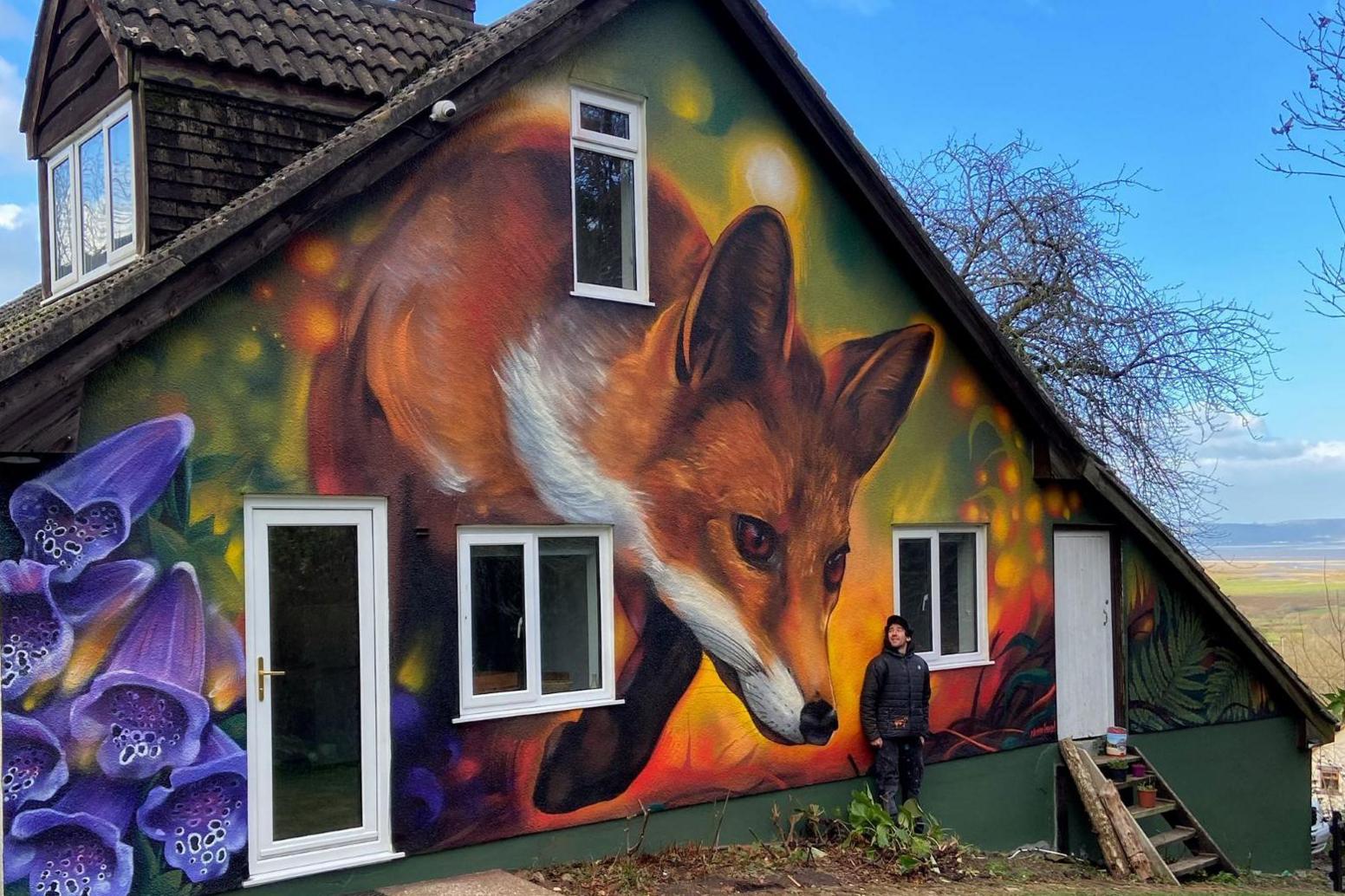
Hasan, grew up in Swansea and lives in Bristol, specialises in creating large-scale murals
Thirty miles away in Cardiff, the Banksy effect is also being felt.
There, graffiti writer Amelia Thomas, better known as Unity, said: "People have their own feelings about Banksy, but something that can't be disputed is one thing that Banksy has done is raise the profile of people painting on walls being acceptable.
"There's a lot of people in Port Talbot who had already been painting for years and not getting any recognition, so it's a bit barmy that it takes someone from outside to paint something for people to actually appreciate the local people."
Amelia grew up in rural Llanfihangel Talyllyn in Powys, and said she had always been drawn to "making marks on walls".
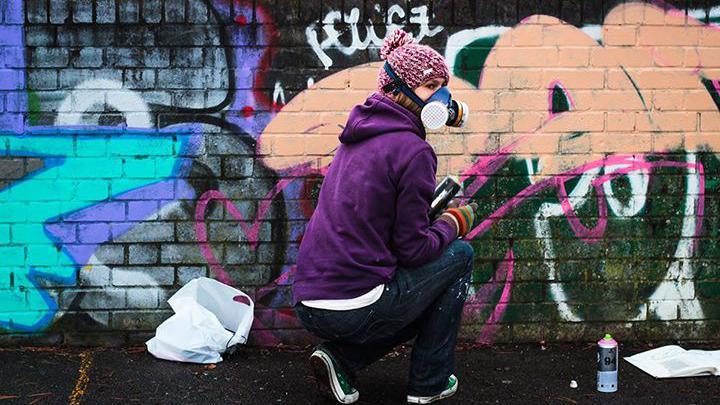
Amelia Thomas, better-known as Unity, says attitudes towards painting on the street have improved
"I was getting into trouble because no-one else was doing it and it was quite obviously me," she said.
Everything changed when she saw a graffiti magazine at her cousin’s house.
"I was like ‘Oh, my God, there's other people doing this, that's what I'm being drawn to."
After moving to Cardiff in the mid 2000s she found walls where she could paint "without getting hassled".
"It's much easier to paint on the street without having people hassling you now, because people are used to seeing it for one. But also and there are places where you can say, ‘I'm allowed to be here, it's nothing to do with you, leave me alone’," she said.
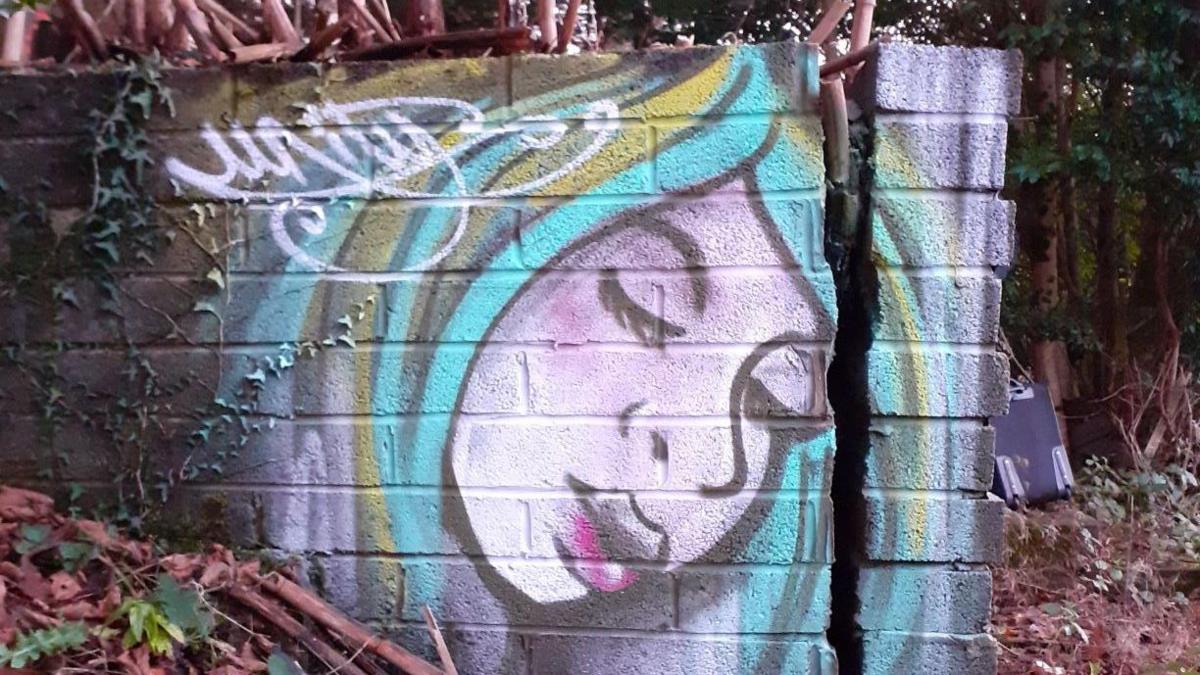
Amelia says painting is good for improving mental health
Many places around the UK have open walls where artists are able to paint.
"That’s a massive step from where things were," said Amelia.
For Amelia, expressing herself through art is a way of protecting her mental health.
"It’s about raising awareness to the public that actually, this is something that's benefiting the person that's painting, they're not doing it to annoy you, they're doing it because it's something that they need to do, that they're compelled to do and that helps them keep their head above the water, because that's what it is for me," she said.
"When you're painting, nothing else in the world exists. It's just you and that wall."
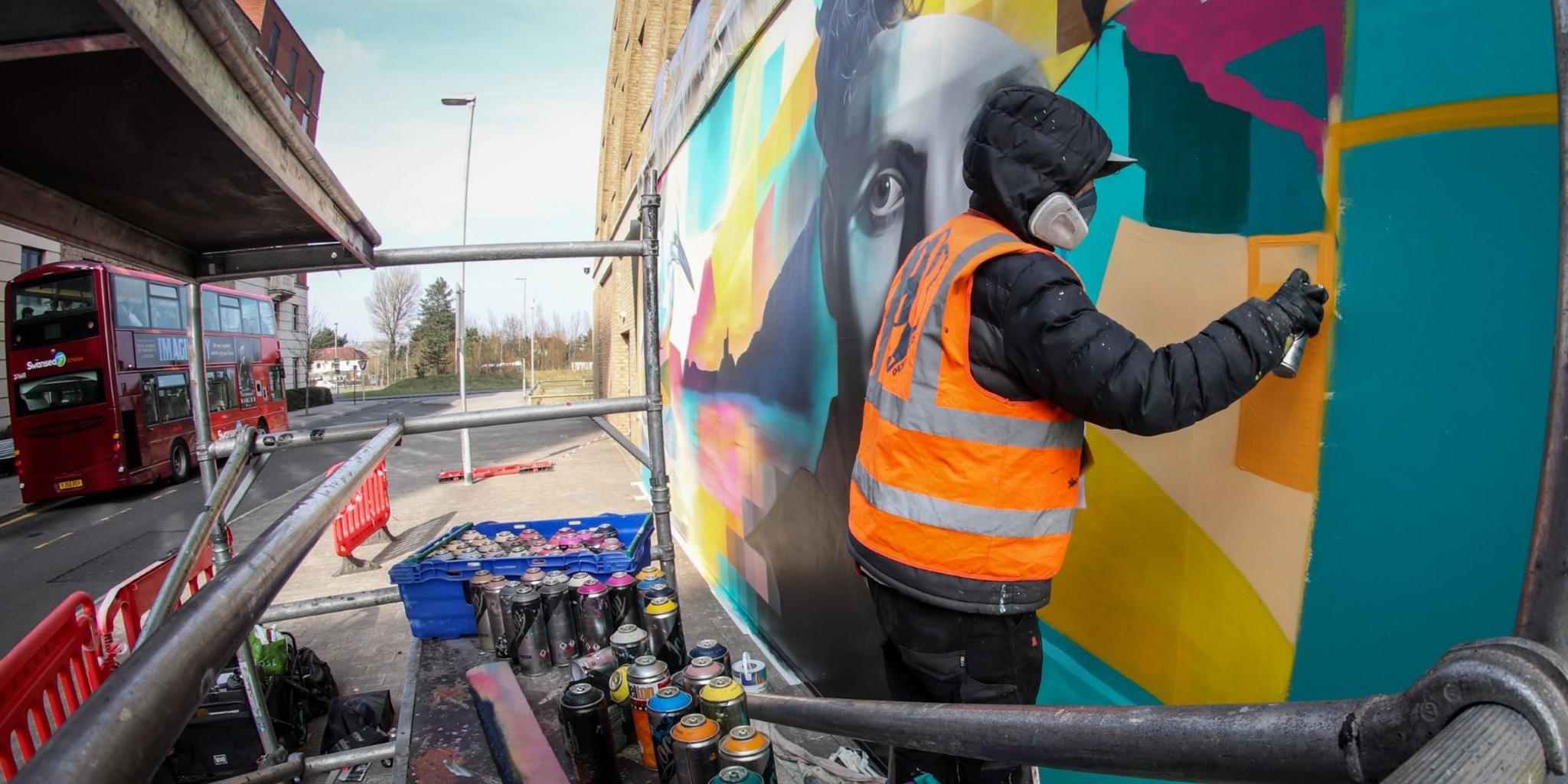
Hasan Kamil began painting walls as a teenager
Hasan Kamil grew up in Swansea with a passion for creating graffiti art.
After spending five years working as a graphic designer he now lives in Bristol, and works creating large-scale murals and bespoke lettering.
When he is outside painting murals people frequently stop to ask him about his work, so he said he has a good gauge about how the public feel about art popping up on buildings, walls and underpasses.
"The average perception [says] 'I love the street art but hate the graffiti, hate the tagging'," he said.
"But they don't realise they coexist and graffiti was kind of there first, so I will always be a big advocate for graffiti."
There’s another frequent comment.
"The B word - Banksy. ‘You’re not Banksy are you?’ You get that a lot."